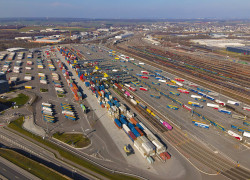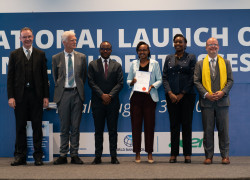Nearly 50% EMEA firms believe AML regulations need more clarity to be more effective
Across the Europe, Middle East and Africa (EMEA) region, almost half of financial firms believe that current Anti-Money Laundering (AML) regulations are insufficiently clear or do not address many of the practicalities of modern AML operations, with many firms, especially banks, having concerns about the workability of both current and upcoming AML regulations.
In its first-of-its-kind report, covering hundreds of financial institutions in 40 countries across EMEA, PwC’s EMEA AML Survey 2024: Spotlight on Effectiveness sheds light on how banks, asset managers, and payment institutions are tackling AML risks, their perspectives on the regulatory environment and future-proofing the financial system.
In the face of increasing regulations and regulators’ growing scrutiny and focus on AML effectiveness, financial firms said the biggest challenges are lack of regulatory uniformity, finding skilled AML staff, data management, updating Know-Your-Customer (KYC) documentation, automating processes, and operational costs, which have increased by 14% over the past two years.
Key findings include:
- Despite the digital hype, having skilled staff is seen as the most important factor for effective AML compliance. For 35% of respondents, this staff-related challenge is also hindering AML teams’ ambitions to implement digital tools which would have otherwise improved their effectiveness by better detecting suspicious activities. Ultimately, without a stable and strong foundation to build on, implementing novel digital tools – AI and otherwise – in AML teams would not bring about the desired improvements in effectiveness and efficiency.
- The most common regulatory concern among respondents is a lack of uniformity and application across jurisdictions and industries, according to nearly one fifth of respondents, resulting in ambiguity when it comes to entering relationships and transactions. Within the EU, such concerns will likely be alleviated moving forward as the new AML Package gets rolled out in the coming years.
- 63% of respondents are fully confident that their transaction monitoring approach is fit-for-purpose, although 55% say that the maturity of their systems are an impediment to implementing new technologies.
- The main driver behind AML investments is to increase the effectiveness of compliance controls, cited by 36% of respondents, with transaction monitoring being the top AML topic to prioritise.
- With regards to digital tools, over half of respondents (55%) expect to spend more than 10% of their AML budget on them, with emerging markets in the Middle East (96%) and Africa (86%) being the most likely to do so than established financial centres. 13% of respondents in the Benelux have no plans to invest in digital tools at all, the highest among all regions under study.
- While all regions are considering implementing AI solutions to their AML operations, financial institutions in the Middle East (93%), Africa (93%), and the Nordics (94%) are the most enthusiastic. Transaction monitoring (79%) and screening (59%) are the main AML functions respondents are planning to use AI for.
Michael Weis, Anti-Financial Crime Leader at PwC Luxembourg and co-chairman of the editorial board said:
"Within the EU financial sector, there's a mixed sentiment towards regulatory clarity and effectiveness. While just over half of firms see current regulations as clear enough, much scepticism remains about the practicalities of implementation. Despite this, we welcome today the European Parliament’s vote on the EU’s AML package which will address those concerns by helping to create a more harmonised regulatory environment across borders and industries and address some of the operational challenges faced by firms.”
Speaking at the launch of the report at PwC Luxembourg, Marilin Pikaro, Director of the Innovation, Conduct and Consumers Department at the European Banking Authority (EBA) said:
"Sound AML/CFT governance arrangements, appropriate risk assessment practices, awareness of staff members and timely reporting processes are key to prevent and fight money laundering and terrorist financing (ML/TF). The European Banking Authority’s role as defined by its legal mandate is to lead, coordinate and monitor the EU financial sector’s fight against ML/TF across the EU.”
Communiqués liés
RSA launches technology and management liability insurance s...
RSA Luxembourg, part of Intact Insurance Specialty Solutions, today announces th...
Lancement d'une nouvelle connexion intermodale entre Bettemb...
CFL multimodal a le plaisir d'annoncer le lancement de sa nouvelle connexion i...
Experts from LUNEX award first micro-credentials in Rwanda o...
The Rwanda Ministry of Education (MINEDUC) formally inaugurated Syllabi, a publi...
ERG Notes that ENRC Secures Landmark Victory as Court of App...
Eurasian Resources Group (ERG), a leading diversified natural resources group he...
LetzToken et La Vie est Belle annoncent leur partenariat ouv...
«?LetzToken?», plateforme de tokenisation pionnière basée à Luxembourg, et ...
ERG announces a Pre-Export Finance Facility Agreement based ...
Eurasian Resources Group (“ERG”, “The Group”), a leading diversified nat...
Il n'y a aucun résultat pour votre recherche







